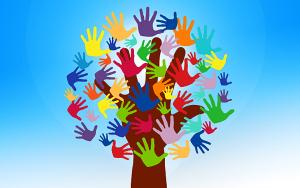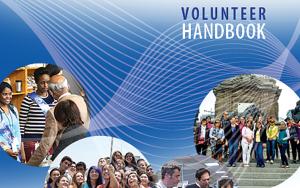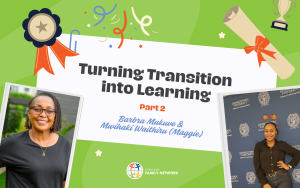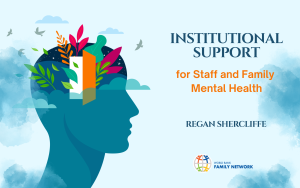
By Stephanie Asare Nti, Clinician
WBG Domestic Abuse Prevention Program
October is Domestic Violence Awareness Month in the United States. This is a time to reflect on education and prevention within our communities.
The Importance of Understanding Domestic Abuse in Families
Domestic Violence Awareness month highlights the startling realities of abuse that occur within intimate partner relationships and the family unit. Domestic Violence is a global health concern and a human rights violation that affects millions of people. It transcends international borders and threatens the health and well-being of women, children, families and communities. In addition, it undermines social, economic, political and human development globally. The World Bank Group is working with governments and civil societies in its member countries, along with other development partners, to ensure that every citizen, male or female, may live free from violence.
Domestic abuse is a pattern of behaviors that may include verbal & psychological abuse, social isolation, deprivation, intimidation, control of finances, physical or threat of physical abuse, and sexual assault. Domestic abuse occurs in all settings and among all socioeconomic, educational levels, religious and cultural groups, and within same sex couples. (World Health Organization https://www.who.int/news-room/fact-sheets/detail/violence-against-women). The purpose of this article is to highlight the importance of better understanding domestic violence from a family perspective as it affects everyone in the family. It is important to consider the role of that person within the family system when providing counseling and other supports. Furthermore, in contrast to widespread expectations, couples who experience domestic abuse may still may want to remain together. Therefore, it is important to understand the dynamics that exist within the family and support interventions that help empower each member of the family to live a life free from domestic abuse, and develop strong mutually respectful relationships.
Scope of the Problem:
There has been an increased awareness of the importance of understanding the unique perspectives of all individuals involved in domestic violence: those who are abusive, and those who experience the abuse. Those who engage in abusive behaviors, are commonly referred to as “perpetrators”, or “abusers”, and demonstrate a pattern of coercive control and power tactics over the other partner. The most common perpetrators of violence against women and children continue to be male intimate partners or ex-partners, however cases involving male victims are becoming increasingly common, though still less prevalent. In rare cases couples may be experiencing what is referred to as Situational Couple Violence, also called “common couple violence”, which is not connected to general control behavior, but arises in a single argument where one or both partners physically lash out (Michael P. Johnson, 2008).
Multiple Variables and Risk Factors:
Risk factors associated with domestic abuse occur at individual, family, community and wider community levels. Some are associated with being a perpetrator of abuse, some are associated with experiencing abuse, and some are associated with both.
Adverse Childhood Experiences
Children who are exposed to domestic abuse experience a range of adverse emotional, psychological, neurobiological and behavioral consequences that could affect their development and longer-term wellbeing as adolescents and as adults. The Adverse Childhood Experiences Study (ACE) revealed that a higher number of adverse childhood experiences (such as exposure to domestic violence, bullying or being bullied; exposure to community violence; physical or sexual abuse during crucial developmental years; drug/alcohol abuse history), increases the risk of health, social and behavioral problems throughout the lifespan.
Stress Within Relationships
There are several factors that may contribute to stress within the family. These may include: working/living in a new country; being away from friends and family; being newly unemployed; normal stresses and strains of being a new parent; being more of a single parent than anticipated; long mission travel; being stuck alone away from your partner and children in a hotel room for days and weekends; culture shock; not speaking the language; being dependent on your partner’s salary; limited leisure activities; co-dependency on a partner, maladaptive coping strategies; addictions and mental health issues.
These risk factors may provide some insight into some of the underlying issues that need to be explored in prevention work within intimate partner relationships and the family unit.
Prevention and Response: The Domestic Abuse Prevention Program
For over twenty-five years, the World Bank Family Network (WBFN) has advocated on behalf of families of WBG staff. WBFN has been instrumental in helping gain recognition and support from the institution of the World Bank for its families dealing with domestic abuse. Through their efforts, the Domestic Abuse Prevention Program (DAPP) was established in 2001.
DAPP offers counseling services to families experiencing domestic violence. The DAPP team includes multi-cultural and multi-lingual licensed clinicians/counselors, a case manager, and a coordinator trained to deal with the very distinct issues that many individuals who experience abuse face. DAPP provides free and confidential assessments, counseling, safety planning, case management, legal consultations, emergency funds, and referral services to all individuals at Headquarters in DC and Country Offices around the world. A 24-hours and 7-days-a-week hotline is available for crisis support. A staff’s employment will not be impacted if a spouse contacts the program. The goal of DAPP is to help empower individuals to access their personal strength and resilience through a process of support, information and resources so that they can make informed decisions and get the help they need.
The Family Consultation Service (FCS), a WBFN program, is a 24-hours/7-days a week confidential counseling service also aimed at helping families deal with general and transitional stress, or personal and family relationship concerns. FCS is located at the World Bank Group’s headquarters in Washington and serves spouses, domestic partners, and other dependents over 18-years old, including those based at headquarters and around the world.
Domestic abuse can happen to anyone and the WBG is committed to providing confidential support. If you or someone you know is dealing with domestic abuse, please contact:
- The World Bank Group's Domestic Abuse Prevention Program 202-458-5800 or daprevention@worldbank.org
- Family Consultation Service 202-458-5550 (Spouses, partners, and dependents above 18 years)
- In case of a life-threatening emergency, Call 911 or emergency resources in appropriate country.
Upcoming events organized by DAPP co-sponsored with WBFN:
Sources:
New Beginnings, Montgomery County Department of Health and Human Services, APP Manual (2008)
Dr. Michael P. Johnson. “A Typology of Domestic Violence: Intimate terrorism, violent resistance, and situational couple violence” (2008)
(World Health Organization)- https://www.who.int/news-room/fact-sheets/detail/violence-against-women.
Centers for Disease Control and Prevention. The Adverse Childhood Experiences (ACE) Study.






